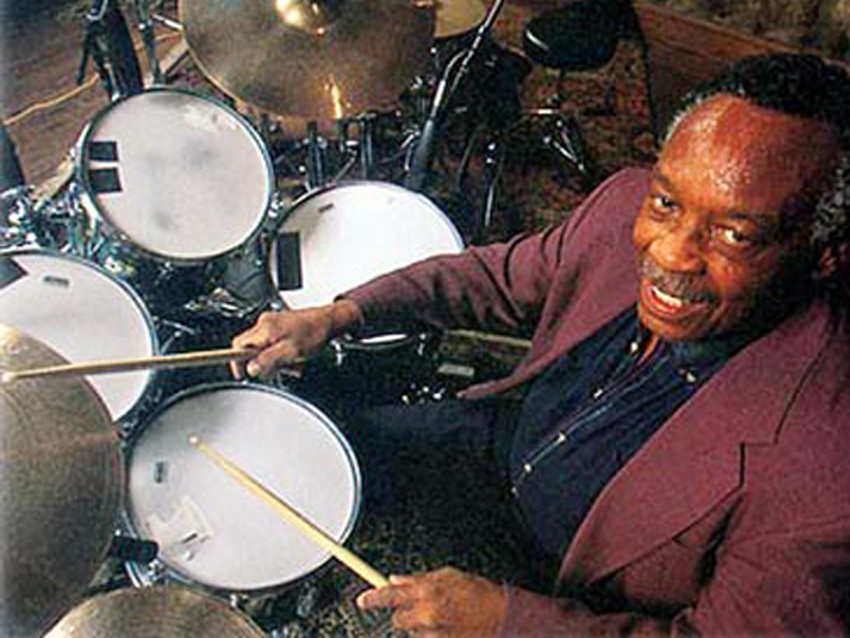BLOG: I've heard that, that's whatshisname
Famous track, non-famous player

The other day, my six-year-old daughter was bopping around the living room, singing and dancing to the music on a Nickelodeon kids's show. "Oh my God!" I exclaimed. "That's Clyde Stubblefield." She stopped dancing and looked at me as if I had two heads. "Clyde whatshisname?" she said. "That's Clyde Stubblefield. You know - the funky drummer." I don't know why I added that last part, for I was clearly forgetting who I was talking to. Again, she gave me that look, then resumed dancing.
Poor Clyde, I thought. It happened again.
You might not know it, but you're a big fan of Clyde Stubblefield - if you've listened to, I don't know, anything (and I do mean anything) in the last 38 years. Clyde Stubblefield, you see, was not only the drummer for James Brown from 1965-1970, during which time he performed famously on tracks such as Cold Sweat, Say It Loud - I'm Black And I'm Proud, I Got A Feelin', and a whole lot more, but he is also the most-heard drummer in history. He probably beats out Ringo Starr for this distinction. The reason for this, quite simply, is his performance on the 1970 James Brown song Funky Drummer.
As groove-based James Brown songs go, it's a sturdy jam based around the interplay between a fluid bass, stabbing horns, an in-the-pocket rhythm guitar, a sprinkling of electric piano, and Brown himself, who improvises with his usual brio. But around five minutes into the seven-minute long cut, Brown gives the band the following direction: "When I count to four I want everybody to lay out and let the drummer go; and when I count to four I want you to come back in. Huh!" (That "Huh!" is of course crucial.) The band obeys, and after Brown gives the count, at 5:35 in the song, Cylde Stubblefield lets loose with roughly 20 seconds of top-notch solo drumming. It's not flashy, but it's very, very funky - so much so that Brown named the song accordingly.
That 20 or so seconds of top-notch solo drumming has, over the years, become the basis (although, in some cases, the flavoring) of songs by the likes of Public Enemy, The Beastie Boys, Prince, and even Nine Inch Nails. Oh, and there's a whole lot more. To this day, nobody has come forth with a list that is near complete, but if you want to boggle your mind, here's a pretty good one. Pour yourself a cup of something - it might take you a while to get through.
Along with his band mates, Clyde walked out on James Brown in 1970. The biggest reason given for the collective tendering of resignation was "lack of payment." Apparently, Brown loved his band, but not so much that he felt he had to pay them. Imagine, however, if Clyde had a writer's credit on the song. More important, imagine if a contract existed in 1970 that stipulated royalty payment for such a thing called "sampling." Good ol' Clyde would be living pretty fat these days.
My daughter, of course, still wouldn't know who he is. But millions of other people just might.
Want all the hottest music and gear news, reviews, deals, features and more, direct to your inbox? Sign up here.
By Joe Bosso
MusicRadar is the number one website for music-makers of all kinds, be they guitarists, drummers, keyboard players, DJs or producers...
- GEAR: We help musicians find the best gear with top-ranking gear round-ups and high-quality, authoritative reviews by a wide team of highly experienced experts.
- TIPS: We also provide tuition, from bite-sized tips to advanced work-outs and guidance from recognised musicians and stars.
- STARS: We talk to musicians and stars about their creative processes, and the nuts and bolts of their gear and technique. We give fans an insight into the craft of music-making that no other music website can.
